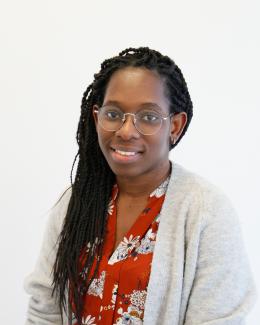Larissa Fossi-Djembi: Helping to Prevent Suicide
How can we reduce repetitive suicide attempts? That’s the question being addressed by Larissa Fossi-Djembi, PhD in Public Health and Epidemiology at the centre for research into epidemiology and population health (CESP, University of Paris-Saclay, UVSQ, Inserm) in her thesis: "Evaluate the efficiency of an algorithm that tracks the repetition of suicide attempts in the Nord-Pas-de-Calais region: VigilanS".
Tell us about your thesis subject.
I am researching suicide prevention in the Nord-Pas-de-Calais using VigilanS which has been deployed in the region. This tool tracks patients who have attempted to commit suicide. When a suicide attempt fails, a repeated suicide attempt is likely. The purpose of the tool is to avoid such recurrence.
My role as a PhD student is to assess this tool in relation to the various steps in place. Patients who leave hospital after a suicide attempt are tracked for six months. For example, they are called at set intervals to find out how they are managing. My goal is to assess whether such follow-up reduces the number of repetitive suicide attempts.
Why did you choose this thesis topic?
I have wanted to study epidemiology for a long time, so I pursued an undergraduate degree and a master’s programme in the field. I was initially attracted to a topic about infectious diseases for my thesis, then I was offered this topic about suicide. I liked the idea of acting on a public health problem, a bit like an Avenger. I thought that maybe I could help.
What do you intend to do when you finish your thesis?
I’d like to continue with research, particularly into mental health. The subject has fascinated me since I discovered it. I realise there is still much to be done to improve people's health.
Why did you decide to participate in MT180?
As a researcher, I will be asked to present my research work, including to the general public. MT180 is an opportunity to practise talking to a large audience of non-specialist people. It is perfect! It is also an opportunity to talk about my subject: I kill two birds with one stone!
